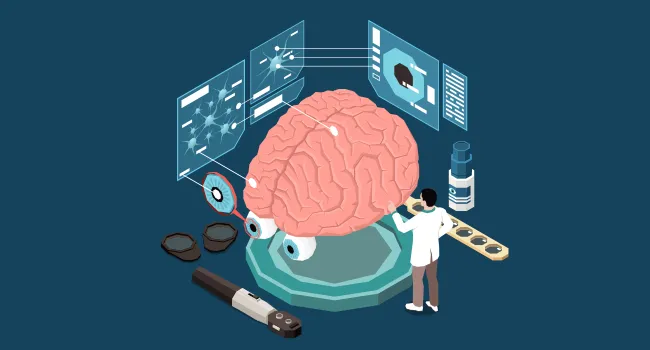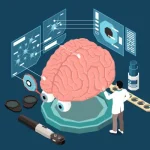Neuro-ophthalmology disorders are complex systemic diseases of the nervous system that tend to affect vision, eye movements, alignment within the eye, and pupillary reflexes. These diseases are typically corrected by a neuro-ophthalmologist, though some are minor and can be fixed by ophthalmologists. Some of the conditions that require a neuro – ophthalmologist’s attention are as follows –
a. Optic neuritis;
b. Papilledema;
c. Toxic or Nutritional Optic Neuropathy;
d. Strabismus.
What are the causes of neuro ophthalmology diseases?
Some of neuro-ophthalmology diseases can be caused to due a variety of factors. Some patients may develop these diseases due to other underlying autoimmune conditions, while others may develop them as a side effect of medication. Some of the common causes are:
- Autoimmune disorders
- Cardiovascular diseases
- Bacterial and viral infections
- Tumors
- Traumatic brain injury
What are the symptoms of neuro ophthalmology disorders?
Neuro-ophthalmology disorders are not easy to detect. This is because most of the symptoms tend to be quite subtle. You can, however, always keep an eye out for the few Neuro-ophthalmology symptoms that act as a red flag and require attention.
These are as follows –
- Sudden decrease or loss of vision
- Intractable headaches
- Transient ischemic attack or eye stroke
- Double vision or diplopia
- Pupillary abnormalities such as sluggish reaction, the difference in the size of the pupils
- Sudden difficulties in identifying colours
- Visual Field Defects
- Visual hallucinations
- Inability to tolerate bright light
- Squint or strabismus, especially if it is an adult-onset of the condition.
What are the tests used to identify neuro-ophthalmologic diseases?
If a doctor suspects neuro-ophthalmologic issues, the following procedures will be used to identify the exact disease –
- Evaluation of ocular movements
- Diplopia charting
- Orthoptic evaluation
- Optical coherence tomography of the optic nerve head
- Neurological visual fields screening
- Lumbar puncture
- Imaging studies including CT scan, MRI, and MR venogram
- Evaluation of contrast sensitivity and colour vision
What is the treatment for neuro-ophthalmology disorders?
Neuro-ophthalmology treatment involves procedures that assess ocular movement, screen visual fields, evaluate contrast sensitivity and colour vision, conduct Diplopia charting, etc.
Why CFS?
Centre for Sight ensures that the treatment offered at its super specialty hospital is comprehensive, from an eye examination to diagnosis to post-operative treatment. Well–trained staff, skilled neuro-ophthalmologists, and state-of-the-art infrastructure will ensure that the best care is provided to the patient.
Article: What are Neuro ophthalmology disorders you should know about?
Author: CFS Editorial Team | July 16 2022 | UPDATED 04:10 IST
*The views expressed here are solely those of the author in his private capacity and do not in any way represent the views of Centre for Sight.





